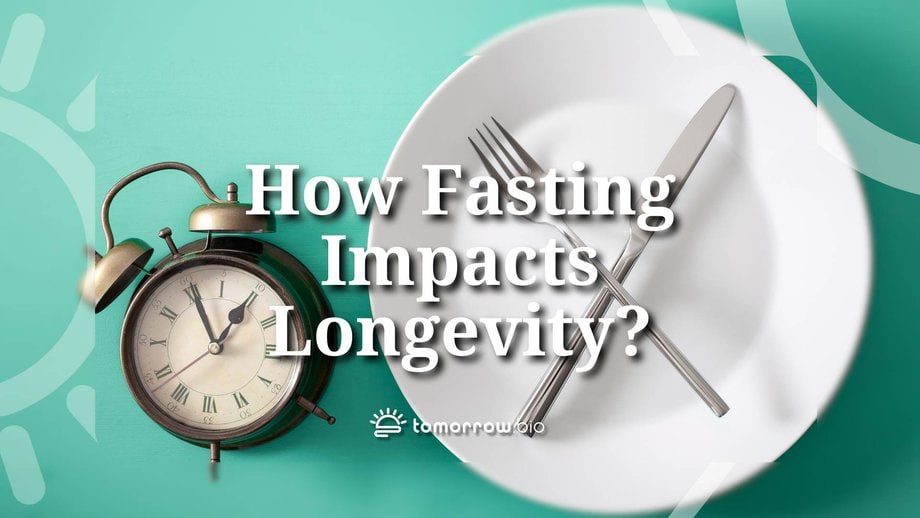Fasting Impact on Weight Loss, Health and Longevity

Fasting has shown promising effects on weight loss. It can help individuals shed excess pounds and maintain a healthy body weight.
Fasting also has benefits for muscle maintenance. It helps preserve lean muscle mass while promoting fat loss. This is important for overall body composition and preventing muscle wasting.
In addition, fasting has positive effects on organ health. It can improve insulin sensitivity, reduce inflammation, and support the health of vital organs such as the liver and pancreas.
Furthermore, fasting has even been shown to influence genetic makeup. It can activate certain genes that promote cellular repair and longevity.
These various benefits make fasting a potential intervention for promoting health and longevity.
Key Takeaways
- Fasting and time-restricted feeding can impact various aspects of health and wellbeing.
- Different schedules of time-restricted feeding can affect weight loss, muscle maintenance, organ health, and more.
- Resting blood glucose levels are associated with mortality in humans, but the relationship is different in mice.
- Understanding the relevance and limitations of studies performed in rodents is important in the context of fasting and feeding.
Impact of Fasting on Health
Fasting has been shown to have a significant impact on various aspects of health, providing numerous potential benefits for individuals seeking to improve their overall well-being.
One key area where fasting has been found to have a positive effect is on metabolism. Research has shown that fasting can help regulate blood glucose levels, improve insulin sensitivity, and promote the utilization of stored fat for energy. These effects on metabolism can contribute to weight loss, improved body composition, and reduced risk of chronic diseases such as diabetes and cardiovascular disease.
Another important aspect of health impacted by fasting is aging. Studies have demonstrated that fasting can have anti-aging effects by promoting cellular repair and regeneration, reducing oxidative stress, and enhancing mitochondrial function. Fasting has been shown to activate certain cellular pathways that are involved in longevity and promote the production of factors that protect against age-related diseases.
These findings suggest that fasting may play a role in slowing down the aging process and promoting healthy aging.
Different Approaches to Time-Restricted Feeding
As we explore the different approaches to time-restricted feeding, it becomes evident that implementing specific feeding schedules can have varying effects on health and wellbeing, going beyond the traditional concept of fasting. Different fasting schedules can optimize time-restricted feeding and provide specific benefits to individuals. To better understand the effects of these schedules, let’s take a look at the table below:
| Fasting Schedule | Benefits | Effects on Health |
|---|---|---|
| 16:8 | Weight loss, improved insulin sensitivity | Reduced inflammation |
| 20:4 | Enhanced autophagy, increased fat burning | Improved cognitive function |
| 5:2 | Reduced risk of chronic diseases | Enhanced metabolic health |
| Alternate-day | Improved cardiovascular health, weight loss | Increased longevity |
Resting Blood Glucose and Mortality Connection
Resting blood glucose levels have been shown to be a significant predictor of mortality in both humans and non-human primates. Higher blood glucose levels are associated with increased mortality in humans, while studies in mice show the opposite effect, with lower blood glucose associated with mortality.
This distinction between humans and mice highlights the need for human-focused research in the field of fasting and feeding. The effect of fasting on metabolism and the impact of blood glucose on lifespan are important considerations in understanding the relationship between fasting and health.
Contrasting Findings in Human and Mouse Studies
The distinction between findings in studies conducted on humans and mice is crucial in understanding the effects of fasting and feeding on health and longevity. While studies in mice have shown that fasting can extend lifespan, the translation to humans is not always straightforward. Table 1 provides a comparison of the effects of fasting on lifespan in human and mouse studies.
| Human Studies | Mouse Studies | |
|---|---|---|
| Effect on Lifespan | Inconclusive | Extended Lifespan |
| Translation to Humans | Limited evidence | Promising results |
In human studies, the effects of fasting on lifespan have been inconclusive. Limited evidence suggests potential benefits, but more research is needed. On the other hand, mouse studies have consistently shown an extension of lifespan with fasting. However, it is important to note that findings in mice do not always translate directly to humans. Therefore, caution should be exercised when interpreting the results of mouse studies and applying them to human health and longevity. Further human-focused research is needed to fully understand the effects of fasting on lifespan in humans.
Importance of Human-Focused Research
Human-focused research is essential for fully understanding the effects of fasting on health and longevity. While studies in mice provide valuable insights, there are notable differences between mice and humans.
The role of genetics, in particular, must be considered when examining the impact of fasting on human health. Genetic variations can influence an individual’s response to fasting, including their metabolism, hormone levels, and cellular processes.
Therefore, human-focused research allows us to assess the specific effects of fasting on our own species, taking into account factors such as genetic diversity and individual variability.
Tools for Following Fasting Schedules
Various tools and strategies can be utilized to adhere to fasting schedules and optimize the health benefits associated with fasting. Here are some key tools and interventions that can support flexible fasting schedules:
- Time-restricted feeding apps: These smartphone applications can help individuals track their eating and fasting windows, set reminders, and monitor their progress.
- Meal planning: Planning meals in advance can ensure that individuals have nutritious, fasting-friendly meals readily available during their eating windows.
- Support groups: Joining a fasting community or support group can provide motivation, accountability, and guidance throughout the fasting journey.
Flexibility in Fasting for Health Benefits
Flexibility in fasting can enhance the health benefits associated with this dietary practice. While following strict fasting schedules can be effective for some individuals, personalized fasting approaches that allow for flexibility can be equally beneficial.
Flexible fasting schedules enable individuals to adapt their fasting periods to suit their lifestyle and preferences, making it easier to adhere to the practice in the long term. For example, individuals may choose to fast for shorter durations on certain days or opt for alternate-day fasting instead of daily fasting.
This flexibility not only improves compliance but also reduces the risk of negative side effects such as nutrient deficiencies or intense hunger. By tailoring fasting schedules to individual needs, individuals can optimize the health benefits of fasting while maintaining a sustainable and enjoyable lifestyle.
Mimicking Fasting Effects With Interventions
One effective approach to mimic the effects of fasting is through the use of interventions. These interventions aim to replicate the physiological changes that occur during fasting, particularly the activation of autophagy, a cellular process that removes damaged components and promotes cellular renewal.
The role of autophagy in fasting is crucial for its health benefits, including improved metabolism, reduced inflammation, and enhanced longevity. To achieve fasting-like effects, interventions may include calorie restriction mimetics, such as drugs or supplements that simulate the metabolic effects of fasting without the need for complete food deprivation.
However, it is important to consider the potential risks and drawbacks of fasting interventions, as they may have unintended side effects or interactions with medications. Therefore, it is essential to consult with a healthcare professional before implementing any fasting intervention.
Managing Deviations From Fasting Schedules
To effectively manage deviations from fasting schedules, it is important to establish a flexible yet structured approach that allows for occasional adjustments while maintaining the overall fasting goals.
One strategy for managing hunger cravings during periods of fasting is to consume calorie-free beverages such as water, black coffee, or herbal tea. These beverages can help curb hunger and provide a sense of fullness without breaking the fast.
Additionally, practicing mindful eating during non-fasting periods can help maintain fasting discipline by promoting awareness of hunger cues and preventing overeating. Planning meals and snacks in advance, choosing nutrient-dense foods, and incorporating protein, fiber, and healthy fats can also contribute to satiety and help manage hunger cravings.
Health, Weight Loss, and Performance Benefits
Research has shown that fasting can have numerous health, weight loss, and performance benefits. Here are some key points to consider:
- Improved Metabolic Health: Fasting has been linked to improved insulin sensitivity, reduced blood sugar levels, and decreased risk of chronic diseases such as type 2 diabetes and heart disease.
- Enhanced Weight Loss: Fasting can promote weight loss by reducing calorie intake, increasing fat burning, and boosting metabolism.
- Increased Performance: Fasting has been shown to enhance exercise performance by improving energy utilization, increasing fat oxidation, and stimulating the production of growth hormone.
Sponsored Products Promoting Health and Wellbeing
In support of health and wellbeing, several sponsored products are available that offer valuable tools and resources to optimize one’s overall wellness. These products align with the benefits of fasting, such as improved cognitive function and the management of chronic inflammation.
When it comes to cognitive function, fasting has been shown to have positive effects. Research suggests that fasting can enhance brain health, improve memory, and promote mental clarity. Sponsored products that promote brain health, such as brain-boosting supplements or cognitive training programs, can complement the cognitive benefits of fasting.
Additionally, fasting has been found to play a role in managing chronic inflammation. Chronic inflammation is linked to various health conditions, including heart disease, diabetes, and certain cancers. Sponsored products that focus on reducing inflammation, such as anti-inflammatory supplements or specialized diets, can support the anti-inflammatory effects of fasting.
These sponsored products provide individuals with practical tools and resources to enhance their health and wellbeing while incorporating fasting into their lifestyle.
Frequently Asked Questions
What Are the Specific Health Benefits Associated With Fasting?
Fasting has been associated with numerous health benefits, including weight management and improved metabolic health. It can enhance weight loss, promote insulin sensitivity, reduce inflammation, and support cellular repair, contributing to overall health and longevity.
How Do Different Approaches to Time-Restricted Feeding Affect Weight Loss and Muscle Maintenance?
Different approaches to time-restricted feeding can impact weight loss and muscle maintenance. Research suggests that specific schedules can optimize metabolic health and assist in weight management. However, individual variations and adherence may influence outcomes.
Why Do Resting Blood Glucose Levels Increase With Age in Humans?
Resting blood glucose levels increase with age in humans due to age-related changes and metabolic dysregulation. This can lead to a higher risk of mortality. Understanding these factors is crucial for promoting health and longevity.
Can the Findings From Studies Conducted on Mice Be Directly Applied to Humans?
The applicability of mouse studies to humans and the translation of findings to human health is a complex issue. While studies in mice can provide valuable insights, it is important to consider the limitations and differences between species when applying these findings to humans.
What Are Some Alternative Interventions or Tools That Can Mimic the Effects of Fasting?
Alternative interventions or tools that can mimic the effects of fasting include fasting mimicking diets and intermittent fasting. These approaches, when followed properly, can provide similar health benefits as traditional fasting, such as improved metabolism, weight loss, and overall wellbeing.









